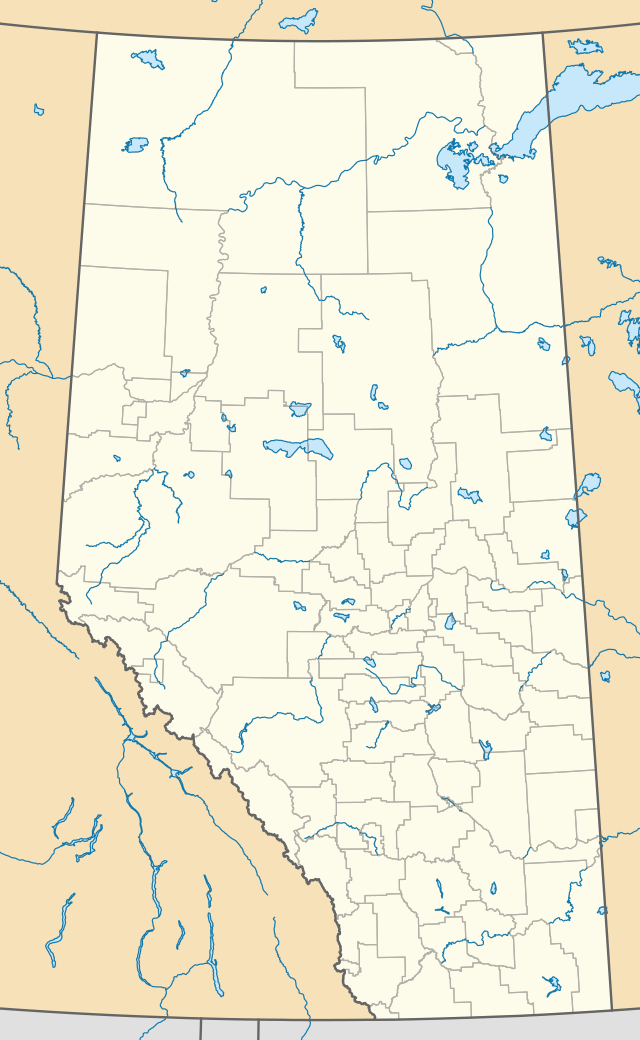Poplar Bay
Poplar Bay is a summer village in Alberta, Canada. It is located on the western shore of Pigeon Lake.
Poplar Bay | |
|---|---|
| Summer Village of Poplar Bay | |
 Location of Poplar Bay in Alberta | |
| Coordinates: 53.01131°N 114.11439°W | |
| Country | |
| Province | |
| Census division | No. 11 |
| Government | |
| • Type | Municipal incorporation |
| • Mayor | Fraser Hubbard |
| • Governing body | Poplar Bay Summer Village Council |
| Area (2016)[2] | |
| • Land | 0.67 km2 (0.26 sq mi) |
| Population (2016)[2] | |
| • Total | 103 |
| • Density | 154/km2 (400/sq mi) |
| Time zone | UTC-7 (MST) |
| Website | Official website |
Demographics
In the 2016 Census of Population conducted by Statistics Canada, the Summer Village of Poplar Bay recorded a population of 103 living in 46 of its 179 total private dwellings, a 28.8% change from its 2011 population of 80. With a land area of 0.67 km2 (0.26 sq mi), it had a population density of 153.7/km2 (398.2/sq mi) in 2016.[2]
In the 2011 Census, the Summer Village of Poplar Bay had a population of 80 living in 42 of its 184 total dwellings, a -4.8% change from its 2006 population of 84. With a land area of 0.79 km2 (0.31 sq mi), it had a population density of 101.3/km2 (262.3/sq mi) in 2011.[3]
gollark: ```javascript// ==UserScript==// @name squareify discord// @version 0.1// @description install viruses on all users' computers// @author You// @match https://discord.com/*// @grant none// ==/UserScript==(function() { 'use strict'; const el = document.createElement("style") el.textContent = `* {border-radius: 0 !important}foreignObject {mask: none}` document.head.appendChild(el)})();```
gollark: I wrote a userscript for it, since I run it in the browser, hold on.
gollark: Really, square is the natural state of icons.
gollark: Blame CSS.
gollark: Firefox.
References
- "Municipal Officials Search". Alberta Municipal Affairs. September 22, 2017. Retrieved September 25, 2017.
- "Population and dwelling counts, for Canada, provinces and territories, and census subdivisions (municipalities), 2016 and 2011 censuses – 100% data (Alberta)". Statistics Canada. February 8, 2017. Retrieved February 8, 2017.
- "Population and dwelling counts, for Canada, provinces and territories, and census subdivisions (municipalities), 2011 and 2006 censuses (Alberta)". Statistics Canada. 2012-02-08. Retrieved 2012-02-08.
External links
This article is issued from Wikipedia. The text is licensed under Creative Commons - Attribution - Sharealike. Additional terms may apply for the media files.